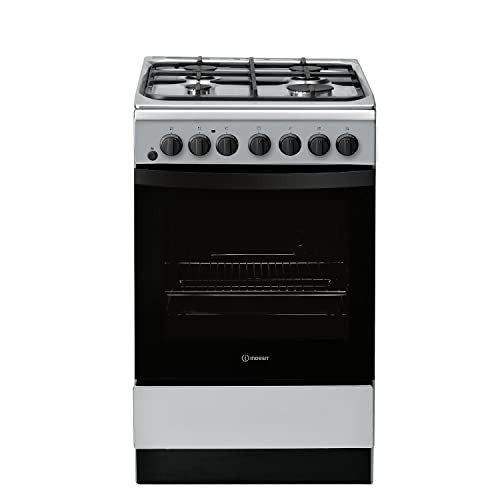Understanding Cookers and Hobs: A Comprehensive Guide
Cooking is an essential element of every day life, and the evolution of kitchen appliances plays a considerable role in how effectively and successfully individuals prepare their meals. Amongst Ovens On Sales , cookers and hobs are 2 of the most essential instruments discovered in modern cooking areas. This post explores the distinctions between cookers and hobs, analyzes their numerous types, and uses insights on their features, upkeep, and selection process.
What are Cookers and Hobs?
Cookers
Cookers are detailed kitchen appliances created for cooking jobs, typically combining an oven and a hob. They can be found in numerous configurations and types, catering to diverse cooking requirements and choices.
Hobs
Hobs, on the other hand, are more focused devices mostly used for boiling, frying, and other stovetop cooking methods. Hobs can be standalone systems or an integrated part of bigger cookers.
| Feature | Cookers | Hobs |
|---|---|---|
| Function | Combines oven and hob | Stovetop cooking only |
| Design | All-in-one unit | Different unit or integrated |
| Types | Electric, gas, double fuel | Gas, electric, induction |
| Setup | Enables for more flexibility | Built into the counter top |
| Price Range | Normally higher | Varies commonly |
Types of Cookers
1. Electric Cookers
Electric cookers use electrical energy as their main power source. They frequently feature a built-in oven and several cooking zones on the hob.
Advantages:
- Even heat distribution
- Available in different styles (e.g., freestanding, integrated)
2. Gas Cookers
Gas cookers run on gas or melted petroleum gas (LPG). They offer immediate heat control, making them a preferred among professional chefs.
Advantages:
- Instant heat changes
- More cost effective operational expenses
3. Dual Fuel Cookers
Double fuel cookers combine the heat of gas with the performance of electric ovens. This setup enables the very best of both worlds, offering control and consistent outcomes.
Benefits:
- Flexible cooking alternatives
- Exact control over stovetop cooking and baking
4. Range Cookers
Range cookers are larger and more powerful than basic cookers, including numerous ovens and hobs for extensive cooking jobs.
Benefits:
- Ideal for big families or cooking for events
- Uses various cooking alternatives in one device
Types of Hobs
1. Gas Hobs
Gas hobs are preferred for their fast heating and strong flame, making them exceptional for scorching and stir-frying.
Advantages:
- Instant heat and control
- Suitable with any type of cookware
2. Electric Hobs
Electric hobs heat up utilizing electric coils or glass-ceramic surface areas, providing a modern look and effective cooking.
Benefits:
- Easier to clean up
- Uniform surface suitable for numerous pots and pans
3. Induction Hobs
Induction hobs use magnetic fields to heat pots and pans directly, using quickly and energy-efficient cooking.
Advantages:
- Safe (cool surface area after removing pots and pans)
- Energy-efficient and accurate
4. Solid Plate Hobs
These standard hobs utilize solid electric plates that heat up gradually.
Benefits:
- Rugged and long lasting
- Usually more cost effective than other types
Key Features to Consider
When picking a cooker or hob, several features ought to be taken into consideration:
- Size and Space: Consider the size of your kitchen and the amount of workspace needed.
- Cooking Style: Choose based upon preference-- gas for control, induction for performance, etc.
- Effectiveness Ratings: Look for energy-efficient models to reduce utility costs.
- Ease of Cleaning: Smooth surfaces facilitate simple maintenance.
- Safety Features: Automatic shutoff, flame failure gadgets, and child locks boost safety.
Upkeep Tips
Maintaining cookers and hobs lengthens their life expectancy and guarantees safe operations.
- Routine Cleaning: Wipe down surface areas after usage to prevent accumulation.
- Check Seals: Check oven door seals frequently for wear and tear to maintain effectiveness.
- Service Regularly: Schedule professional maintenance a minimum of when a year.
- Appropriate Cookware: Use cookware proper for your hob type to avoid damage.
Regularly Asked Questions (FAQs)
What is the distinction in between a cooker and a hob?
A cooker combines an oven and hob in one system, while a hob is typically a standalone home appliance for stovetop cooking.
Do I need a professional to set up a gas cooker or hob?
Yes, expert installation is suggested for gas home appliances to guarantee safety and compliance with local guidelines.
Can I use any kind of pots and pans on induction hobs?
Induction hobs need magnetic cookware. Stainless-steel or cast iron pots work best. Non-magnetic materials will not warm up.
Are electric cookers more energy-efficient than gas cookers?
While both have advantages, electric cookers tend to be more energy-efficient overall, especially with contemporary, high-efficiency designs.
How frequently should I clean my cooker or hob?
It is best to clean them after each usage and perform a comprehensive cleansing weekly to avoid buildup and residue.
Comprehending the differences, functions, types, and upkeep tips for cookers and hobs is necessary for any home cook. By choosing the right device suited to their culinary requirements, users can enhance their cooking experience, making meal preparation an efficient and enjoyable task. Whether selecting the instant control of gas or the smooth efficiency of induction, selecting the appropriate cooker or hob can lead to a notably boosted kitchen experience.

